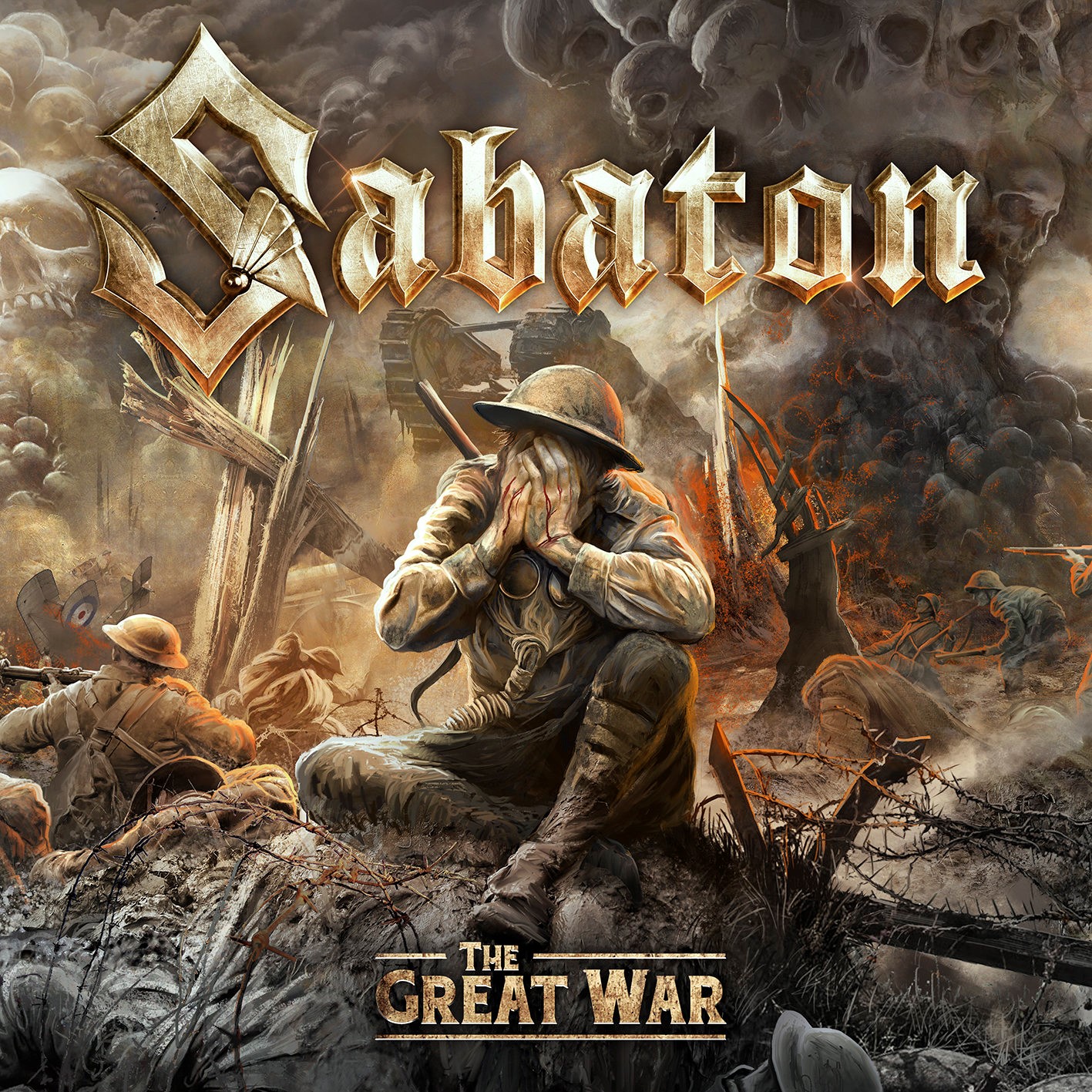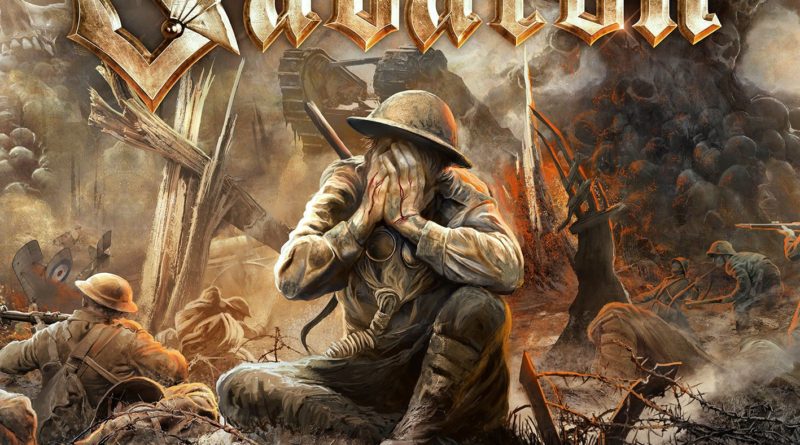ALBUM REVIEW: The Great War – Sabaton
It’s perhaps quite surprising that it’s taken SABATON nine albums to write a record based on arguably the biggest war in modern history. The penchant the Swedes have for writing epic power metal surrounding various military manoeuvres is legendary, yet whilst they’ve focused in the past on individual feats of heroism, last-ditch battles and even Sun Tzu’s classic book The Art of War, they’ve never fully immersed themselves into the suffering and bloodshed that World War One caused over a century ago. That is about to change; The Great War is out later this month via Nuclear Blast Records and represents perhaps SABATON’s most challenging work to date.
It’s been seven years since SABATON last did an album that centred around one theme – that being 2012’s Carolus Rex – but this is the first time they’ve attempted something with the current lineup that has been in place since four members left just after the release of that particular record. It doesn’t take long for any concerns about this to dissipate though; in fact, it’s Joakim Broden’s hearty vocals in opening track The Future of Warfare that blow away all fears. It’s a song typical of the band, a real fist-pumper with a big chorus and pounding drums courtesy of Hannes Van Dahl. The momentum continues from here through the IRON MAIDEN-esque twin guitars of Seven Pillars Of Wisdom (written about Lawrence of Arabia) and the driving force of 82nd Along the Way. The Attack of the Dead Men sees the first prominent use of keyboard in quite a while, the throwback feel of the 1980’s helping to push the track along nicely.
The second half of the record sees the inclusion of all three tracks previously released. The standout of these is the title track, which is very heavy and actually quite emotional, giving a real perspective on the horrors of the four years of conflict within mainland Europe. SABATON have always maintained that whilst they can deal with snide remarks about their musical style and outfits, the one thing you never joke about is the context of the songs and this is testament to that. Lead single Fields of Verdun is probably the one that feels more straightforward than the rest but still packs a punch whilst The Red Baron practically soars like its subject, twisting and turning and once more housing a big keyboard presence. Penultimate song The End of the War to End All Wars is more symphonic metal than anything else, with a huge sound and even bigger feel, choirs and strings underpinning the track to give an epic feel that will surely aid the song into ranking among SABATON’s best. As the album closes, there’s another choir involved, but this time it’s for a chilling rendition of John McCrae’s famous poem In Flanders Field, a haunting reminder about the overall tragedy that war brings to families, countries and the world, regardless of the way results fall to a particular side on the battlefield.
Since their major lineup shift, SABATON haven’t quite managed to replicate the strength of their studio output, but The Great War has finally brought them to that level. It doesn’t completely meet the standard of the aforementioned Art of War from 2008, but it’s easily their best album since and has rightfully seen them reach the heights of arenas in the UK and festival headline slots on the continent. SABATON are marching into new territory with purpose and intention, their flag flying higher than it has done in a long, long time.
Rating: 8/10

The Great War is set for release July 12th via Nuclear Blast Records.
Like SABATON on Facebook.

